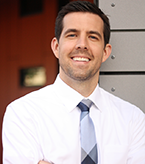If you dread approaching dental visits either days or weeks in advance, you are not alone. Some people are terrified of the thought of having to endure a necessary dental procedure. Others have an overwhelming fear of needles or anesthesia. Patients worry about how much pain will be involved and the loss of control. Dental anxiety and dental phobia are very real conditions and they can be paralyzing. Those who are frightened to this level will do anything to avoid visiting a dentist.
What are the signs of dental phobia?
 A powerful fear that is unreasonable and overwhelming can be classified as a phobia. The person stricken lives with a debilitating aversion to a specific object, situation or activity. Patients with a dental phobia will not seek routine dental care for many years, if ever. It is common for this fearful group to avoid treatment for decades. The result is periodontal disease, tooth loss, pain and rotten teeth for many of these people. It has been reported that about 15 percent of citizens in the U.S. avoid seeing a dentist out of fear. That is approximately 30 or 40 million Americans.
A powerful fear that is unreasonable and overwhelming can be classified as a phobia. The person stricken lives with a debilitating aversion to a specific object, situation or activity. Patients with a dental phobia will not seek routine dental care for many years, if ever. It is common for this fearful group to avoid treatment for decades. The result is periodontal disease, tooth loss, pain and rotten teeth for many of these people. It has been reported that about 15 percent of citizens in the U.S. avoid seeing a dentist out of fear. That is approximately 30 or 40 million Americans.
Where does dental anxiety originate?
People aren’t born afraid of dentists. This fear is learned either through an individual’s experience or from an encounter with someone else’s trauma. At some point in that person’s life, dental treatment became seen as a very frightening thing. The bad experience could have been a personal one, in the dentist’s chair, leaving the patient damaged and terrified. Other people may have heard scary stories, or watched horror movies involving insane dentists.
What is the difference between dental anxiety and dental phobia?
Dental anxiety begins right before appointment time. Dental phobia is a more serious affliction of intense, deep-rooted panic and dread. Their fear and worry will start weeks, or even months, before the actual appointment time. More often than not, this person does not show up at the office. The lingering effects can be detrimental not only to oral health but also to the afflicted person’s overall well-being.
What are the benefits of conservative and comprehensive dentistry?
Find a practice that believes in conservative and comprehensive dentistry, like Dr. Weston Spencer in La Jolla and Rancho Santa Fe. A dentist who uses a conservative approach will be sensitive and attentive to your needs. Dr. Spencer will take the time to understand what you are going through and not overwhelm you with unnecessary dental procedures. Even patients with a long-standing phobia can be treated successfully with reassuring reconditioning methods.
What treatment is available for dental anxiety and dental phobia in La Jolla?
Dr. Spencer may use reconditioning methods to replace the memory of previous negative encounters with positive new dental experiences. This will help improve the patient’s feelings and thoughts of dentistry. These methods can be combined with sedation dentistry to comfortably transition a patient to a pleasant dental experience. Complete comprehensive care will be provided so Dr. Spencer can fully understand the patient’s needs, so he can treat conservatively, and address the concerns that hinder fearful patients. In some cases, it may be necessary for patients to work with a psychologist for a while before transitioning to a caring dentist.
 Dr. Weston Spencer is prepared to listen and help you conquer your dental anxiety or dental phobia. Remember to mention your fears when you contact Dr. Spencer’s La Jolla office online or by calling (858) 459-0077 to schedule a consultation.
Dr. Weston Spencer is prepared to listen and help you conquer your dental anxiety or dental phobia. Remember to mention your fears when you contact Dr. Spencer’s La Jolla office online or by calling (858) 459-0077 to schedule a consultation.
